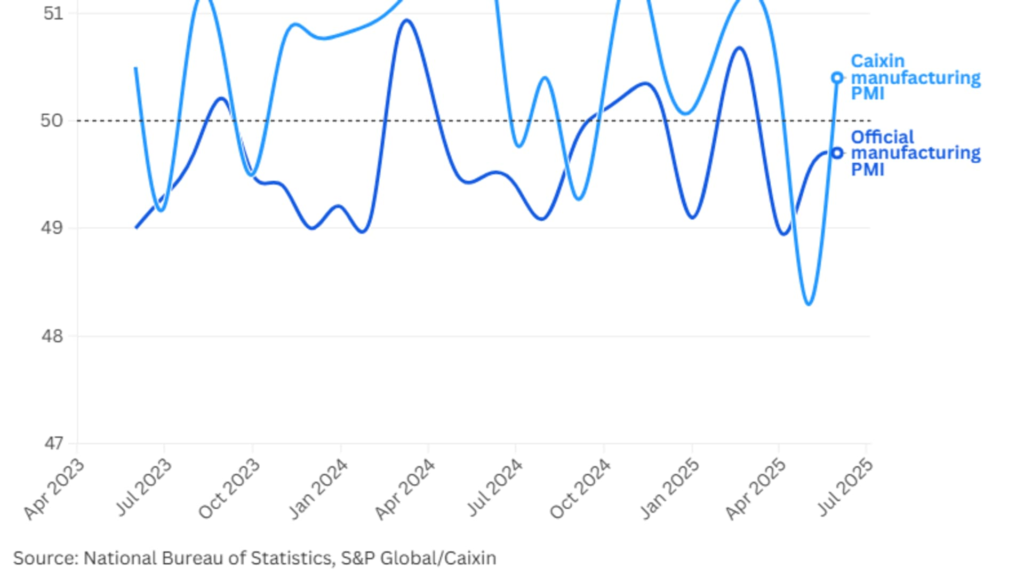The Chinese military has concluded its unprecedented dual aircraft carrier deployment in the broader western Pacific, as one of the warships was spotted leaving the region, Japan has said.
Newsweek has contacted the Chinese defense and foreign ministries for comment by email.
Why It Matters
The Chinese navy is the world’s largest by hull count, enabling the East Asian power to steadily expand its military reach and presence within and beyond the western Pacific, challenging U.S. naval dominance as well as the security of America’s allies and partners.
Both of China‘s aircraft carriers in active service—CNS Liaoning and CNS Shandong—have been operating simultaneously in waters east of the First Island Chain, a U.S. maritime defensive line formed by Japan, Taiwan, and the Philippines, for the first time since June 7.
This rare Chinese naval operation, closely monitored by Japan—a U.S. treaty ally—comes as the U.S. redeploys one of its two aircraft carriers, USS Nimitz, to the Middle East from the western Pacific, in response to rising tensions stemming from the Iran-Israel conflict.
What To Know
The Japanese Defense Ministry issued another update on the Chinese dual aircraft carrier deployment on Friday, revealing that the Liaoning and its naval task group returned to the East China Sea from the Philippine Sea after transiting the Miyako Strait that same day.
Meanwhile, the Shandong-led naval task group continued operating in waters east of the northern Philippines from Tuesday to Thursday. It remains unclear whether this Chinese flotilla will return to the western side of the First Island Chain by transiting the Luzon Strait.
Both waterways—located along the First Island Chain—are key gateways for China’s naval operations in the broader western Pacific. The Miyako Strait lies in Japan’s southwestern waters, while the Luzon Strait separates Taiwan to the north and the Philippines to the south.
6/17以降、引き続き、中国海軍クズネツォフ級空母「遼寧」及び「山東」を含む複数の中国海軍艇が、太平洋の海域において航行していることを確認しました。また、両空母からの艦載戦闘機等の発着艦を確認しました。その後、6/20に、中国海軍クズネツォフ級空母「遼寧」を含む複数の中国海軍艦艇… pic.twitter.com/B6jo0HjRfx
— 防衛省統合幕僚監部 (@jointstaffpa) June 20, 2025
With regard to the Chinese aircraft carriers’ flight operations involving fighter jets and helicopters, the Liaoning conducted 150 takeoffs and landings from Tuesday to Thursday, while the Shandong executed 120 takeoffs and landings during the same three-day period.
The Liaoning, underway in the East China Sea and the Philippine Sea since May 25, has performed a total of 700 aircraft takeoffs and landings. Meanwhile, the Shandong has conducted 350 takeoffs and landings since June 9, according to Japan’s Defense Ministry.
In total, fighter jets and helicopters from the Chinese aircraft carriers executed over 1,000 takeoffs and landings during this western Pacific deployment, which lasted nearly a month.
What People Are Saying
Jiang Bin, spokesperson for the Chinese Defense Ministry, said in a statement on June 13: “China’s carrier training was conducted in international waters, was not directed at any specific country or target, and fully complied with international law and international practice.”
Lin Jian, spokesperson for the Chinese Foreign Ministry, said at a press conference on June 10: “Let me reiterate that Chinese naval vessels’ activities in those waters are fully consistent with international law and international practices. Our national defense policy is defensive in nature. We hope Japan will view those activities objectively and rationally.”

Chinese aircraft carriers CNS Liaoning, top, and CNS Shandong, bottom, conduct flight operations with J-15 fighter jets in the western Pacific Ocean in early June 2025.
Chinese military
What Happens Next
The objectives of this Chinese dual aircraft carrier deployment remain to be seen. It is unclear whether the U.S. will enhance its naval presence in the western Pacific.





![[News] China Rare Earth Group Reportedly Hit by Executive Resignations Amid U.S.-China Trade Tensions](https://koala-by.com/wp-content/uploads/2025/07/Rare-Earth-China-GRINM-Advanced-Materials-20250609-624x404.png)


